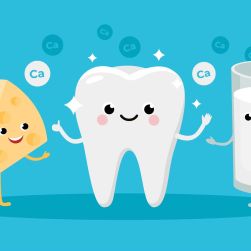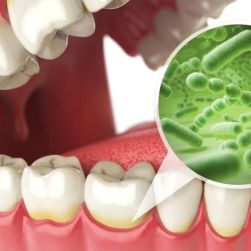Understanding the Impact of Periodontal Disease and Inflammation
The relationship between periodontal disease and inflammation is one of the key focal points in oral health and its impact on overall wellbeing. Periodontal disease, commonly referred to as gum disease, is a chronic inflammatory condition that affects the tissues surrounding the teeth. This condition not only leads to pain and tooth loss but is also linked to various systemic health issues, such as heart disease and diabetes.
The American Academy of Periodontology states that nearly half of the adults in the United States aged 30 and older have some form of periodontal disease. This prevalence underscores the importance of recognizing and managing inflammation before it progresses to more severe health concerns. At Dentistry Toothtruth, we aim to provide comprehensive insights into how periodontal disease and inflammation impact oral health and offer effective solutions to maintain overall health.
What is Periodontal Disease?
Periodontal disease begins with the accumulation of plaque, a sticky film of bacteria on the teeth. If not removed through brushing and flossing, plaque can harden into tartar, which only a dental professional can remove. The initial stage of periodontal disease, known as gingivitis, involves inflammation of the gums and is marked by symptoms such as redness, swelling, and bleeding gums.
Without intervention, gingivitis can advance to periodontitis. This severe form of periodontal disease affects the gums and can destroy the bone supporting the teeth. As the disease progresses, pockets form between the gum and teeth, promoting further bacterial invasion. The National Institute of Dental and Craniofacial Research notes that periodontitis can lead to tooth loss if left untreated.
Signs and Symptoms of Periodontal Disease
Recognizing the signs and symptoms of periodontal disease early can help prevent its progression. Common signs include persistent bad breath, loose teeth, changes in bite, and receding gums. It's important to seek a dental professional's evaluation when experiencing these symptoms.
Bleeding gums during brushing or flossing are often an early indicator of gum disease. Additionally, a persistent metallic taste in the mouth can also signify underlying issues that require attention. Dentistry Toothtruth emphasizes the importance of regular dental check-ups to catch these symptoms early and prevent long-term damage.
The Inflammation Connection
Inflammation is a natural response of the body's immune system to infection or injury, including periodontal disease. Chronic inflammation in the gums due to bacterial infection can have systemic effects on the body's health. Research indicates that the inflammatory response in periodontal disease can contribute to the development of cardiovascular diseases and complicate diabetes management.
A study published in the Journal of Clinical Periodontology highlights the increased risk of heart disease in individuals with untreated periodontal disease. Managing inflammation through dental care and personal habits is crucial in mitigating these risks. Dentistry Toothtruth advocates for an integrated approach to oral health by addressing inflammation early and effectively.
Systemic Health Implications
The systemic health implications of periodontal disease extend beyond oral health. Recent research suggests a link between periodontal disease and conditions such as rheumatoid arthritis, respiratory disease, and even certain types of cancer. The cumulative effect of chronic inflammation poses challenges for individuals with pre-existing health conditions.
Healthcare professionals emphasize the importance of dental care as part of holistic health management. Regular dental visits and treatments can help control periodontal inflammation and consequently reduce the risk of systemic diseases. At Dentistry Toothtruth, we strive to educate patients on the interconnectedness of oral and overall health.
Prevention and Management of Periodontal Disease
Preventing periodontal disease starts with excellent oral hygiene practices. Brushing twice a day, flossing daily, and using an antimicrobial mouthwash can help reduce plaque build-up. Routine dental check-ups are essential for early detection and management of gum disease.
Professional cleanings and scaling are necessary to remove tartar and bacteria below the gum line. In advanced cases, treatments such as root planing or surgery may be warranted. Patients are encouraged to maintain healthy lifestyle habits, such as a balanced diet and smoking cessation, to strengthen their immune response and reduce inflammation.
Effective Strategies for Oral Health
Implementing effective strategies for maintaining oral health can dramatically reduce the risk of periodontal disease and its complications. Investing in electric toothbrushes or water flossers can improve the efficacy of daily oral care routines.
Dietary modifications, such as reducing sugar intake and increasing the consumption of antioxidant-rich foods, can also play a critical role in managing periodontal health. At Dentistry Toothtruth, we emphasize patient education and personalized dental care plans tailored to individual needs to ensure optimal oral health outcomes.
Conclusion and Action Steps
The connection between periodontal disease and inflammation underscores the need for proactive dental care to maintain both oral and overall health. By understanding the symptoms and risk factors, patients can take timely actions to prevent disease progression.
Regular dental visits, stringent oral hygiene practices, and lifestyle modifications are crucial components of effective disease management. Remember, Dentistry Toothtruth is dedicated to providing resources and professional care to help you achieve and maintain a healthy smile. Take control of your oral health today for a healthier future.






